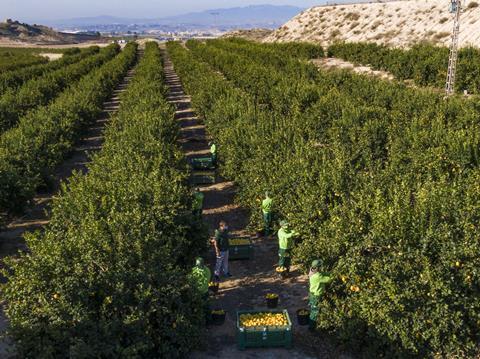Cost inflation, adverse weather and growing competition from third countries make for challenging 2022
Adverse weather led to a contraction in the volume of Spanish fruit and vegetable exports of between 8 and 10 per cent in 2022.

The figures, released by Fepex in late December, peg the value of shipments in 2022 at just over €16.2bn, an increase of 3 per cent on the previous year.
But Fepex said the rise was not enough to compensate for higher prices in a year in which Spanish imports had continued to grow.
The volume of fresh fruit and vegetable exports was on course to slightly exceed 12m tonnes. Fepex said this was due to a series of climatic events, such as the spring frosts that had decimated stonefruit production in Aragón and Catalonia, heavy rains in April and May that had affected production in much of Murcia, and the summer heat waves in Andalusia.
Fepex has called for the implementation of specific measures to promote investments to protect against the effects of climate change.
The federation said cost inflation, along with growing competition from third countries, had added to the challenging landscape faced by producers.
In the first nine months of 2022, imports of fruit and vegetables had risen by 7 per cent in volume and 14 per cent in value. The increase was due to non-EU producers being subjected to less strict requirements than those within the Community, Fepex said.
“Furthermore, the increasing globalization of the EU market is not accompanied by a real opening of new markets for Community producers,” it added.
The factors laid out above would continue to affect the sector in 2023, along with others such as falling consumption, water availability and the impact of the EU’s Farm to Fork Strategy, such as the draft regulation for the use of phytosanitary products, Fepex noted.
“At the national level, there is also concern about the impact on competitiveness of over-regulation of productive and commercial activity caused by a regulatory package derived mainly from the new agrarian policy and the ecological transition process that will come into force in 2023,” it concluded.



